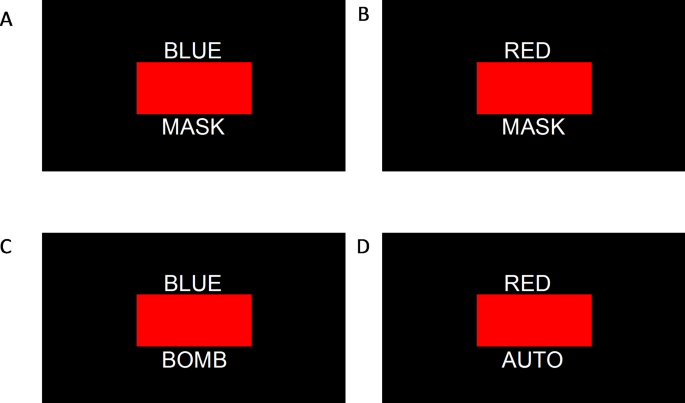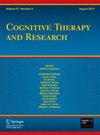COVID-19 Related Loss is Reliably Associated with Attentional Capture and Facilitation by COVID Related Stimuli: Evidence from the Emotional Stroop Dilution Task
IF 2
3区 心理学
Q2 PSYCHOLOGY, CLINICAL
引用次数: 0
Abstract
Abstract Background The losses due to the COVID-19 pandemic has led to widespread impacts on mental health. Although affective attentional processes are implicated in mental health concerns broadly, there has been limited research on the influence of COVID-19 related loss on affective attentional processes. The primary aim of this study was to investigate the impact of a COVID-19 related loss on affective attentional processes. Methods We recruited participants through Amazon Mechanical Turk in an initial study ( Study 1 : n = 136) and pre-registered replication ( Study 2 : n = 206). To measure affective attentional processes, participants completed the Emotional Stroop Dilution Task with word stimuli that were either neutral, generally trauma-related, or specific to COVID-19. To quantify affective attentional processes, novel response-based computation with superior psychometric properties and traditional attention bias computation approaches were used. Results Using response-based measures COVID-19 related loss was associated with greater attention capture and facilitation in response to COVID-19 specific words in Study 1. In Study 2 (pre-registered replication), we again found COVID-19 related loss was associated with high conflict attention capture and facilitation for COVID-19 related stimuli only. No associations between the two studies were replicated with the traditional approach. Conclusions Taken together, findings from these studies suggest that experiencing a COVID-19 related loss is associated with dysregulation of affective attentional processes, specific to COVID-related stimuli. Future research should examine whether dysregulated affective attentional processes can be addressed (e.g., with attention bias modification) which may be helpful for addressing mental health concerns in the wake of COVID-19 related loss.

COVID-19相关损失与COVID-19相关刺激的注意力捕获和促进可靠相关:来自情绪Stroop稀释任务的证据
背景2019冠状病毒病大流行造成的损失对心理健康造成了广泛影响。尽管情感注意力过程广泛涉及心理健康问题,但关于COVID-19相关损失对情感注意力过程影响的研究有限。本研究的主要目的是调查COVID-19相关损失对情感注意力过程的影响。方法:我们通过Amazon Mechanical Turk在初始研究(研究1:n = 136)和预注册复制(研究2:n = 206)中招募参与者。为了测量情感注意力过程,参与者完成了情绪斯特鲁普稀释任务,其中的单词刺激要么是中性的,要么是与创伤有关的,要么是针对COVID-19的。为了对情感注意过程进行量化,采用了新颖的基于反应的心理测量计算方法和传统的注意偏差计算方法。结果在研究1中,使用基于响应的测量方法,与COVID-19相关的损失与更多的注意力捕获和促进对COVID-19特定单词的响应相关。在研究2(预注册复制)中,我们再次发现COVID-19相关损失仅与COVID-19相关刺激的高冲突注意捕获和促进相关。这两项研究之间没有关联,传统方法无法复制。综上所述,这些研究的结果表明,经历与COVID-19相关的损失与情感注意力过程失调有关,特别是与COVID-19相关的刺激。未来的研究应检查是否可以解决失调的情感注意力过程(例如,通过注意偏见修正),这可能有助于解决COVID-19相关损失后的心理健康问题。
本文章由计算机程序翻译,如有差异,请以英文原文为准。
求助全文
约1分钟内获得全文
求助全文
来源期刊

Cognitive Therapy and Research
PSYCHOLOGY, CLINICAL-
CiteScore
5.30
自引率
0.00%
发文量
52
期刊介绍:
Cognitive Therapy and Research (COTR) focuses on the investigation of cognitive processes in human adaptation and adjustment and cognitive behavioral therapy (CBT). It is an interdisciplinary journal welcoming submissions from diverse areas of psychology, including cognitive, clinical, developmental, experimental, personality, social, learning, affective neuroscience, emotion research, therapy mechanism, and pharmacotherapy.
 求助内容:
求助内容: 应助结果提醒方式:
应助结果提醒方式:


